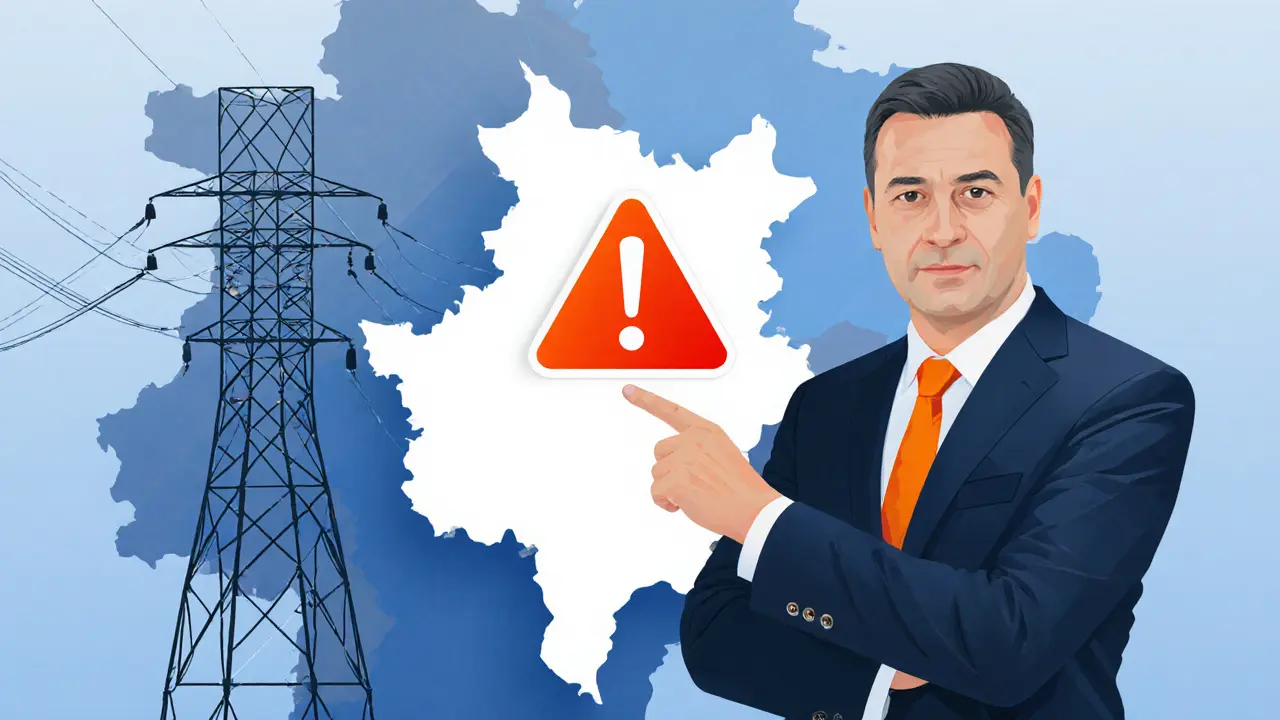Kosovo Crypto Mining Ban Timeline
January 4, 2022
Ban announced by Minister Artane Rizvanolli
Immediate halt of all PoW mining operations. Emergency decree implemented to protect national grid.
Initial BanFebruary - March 2022
Police-customs coordinated raids
Over 300 mining rigs seized. Equipment confiscation and enforcement actions began.
Enforcement BeginsAugust 1, 2022
60-day extension enacted
Legal clause allowing 30-180-day extensions activated. Flexibility for seasonal energy demands.
Extension MechanismOctober 2022 - December 2022
Additional short-term extensions
Continued monitoring of high-consumption households. Ongoing surveillance and enforcement.
Extended Monitoring2023 - 2025
Ban remains in force
Limited alternative-energy pilot projects approved. No new seizures reported, but strict surveillance continues.
Current StatusBan Summary
Prohibited: Proof-of-work mining activities
Targeted: High electricity consumption
Penalties: Up to €5,000 fine or criminal prosecution
Enforcement: Police, customs, and energy providers
Extensions: 30-180 day periods based on energy needs
2025 Exception
Renewable energy-only mining may apply for permits
Requirements:
- 100% renewable electricity
- Third-party verification
- Power draw capped at 500 kW
Key Takeaway
The Kosovo crypto mining ban demonstrates how governments balance energy security with digital asset regulation. While mining remains illegal, renewable energy exceptions offer a potential path forward for sustainable crypto operations.
Kosovo faced a severe energy crunch at the start of 2022. In response, the government issued a sweeping prohibition on all cryptocurrency mining activities, a move that still shapes the country’s crypto landscape three years later.
TL;DR
- January42022: Kosovo’s Minister of Economy, ArtaneRizvanolli, declares a total ban on crypto mining.
- Ban targets proof‑of‑work mining that drains the national grid; violations trigger police raids and equipment confiscations.
- August12022: a 60‑day extension is added, with a legal clause allowing 30‑180‑day extensions based on energy supply.
- 2025 status: mining remains illegal, but limited exceptions exist for operations powered solely by alternative energy.
- Impact: investors, traders, and everyday users lose access to crypto‑based services, while the government keeps the grid stable.
Why the Ban Was Needed
In late 2021 Kosovo declared a state of emergency over electricity shortages. The problem was amplified by a regional ban on fossil‑fuel exports from several EU members, which drove up local power costs. The government’s analysis showed that proof‑of‑work (PoW) mining farms were consuming a disproportionate share of the limited supply-estimates suggested up to 15% of the national grid was tied up in crypto rigs.
Minister of Economy ArtaneRizvanolli framed the decision as an “energy‑security measure” needed to keep households and essential services online. The ban was introduced as an emergency decree, but it also laid the groundwork for longer‑term regulatory frameworks.
What the 2022 Ban Actually Covers
The decree explicitly prohibited any activity that qualifies as cryptocurrency mining, regardless of the coin or algorithm used. The focus was on PoW mining because of its high electricity demand; proof‑of‑stake (PoS) and other low‑energy models were not directly addressed, though they remain unofficially discouraged until a formal legal definition is adopted.
Key components of the ban:
- All mining equipment must be dismantled or removed from Kosovo’s power grid.
- Electricity providers are instructed to flag abnormal consumption patterns that exceed typical residential usage.
- Law‑enforcement agencies, especially the police and customs service, are empowered to conduct raids and seize equipment.
- Violators face fines up to €5,000 and possible criminal prosecution.
Timeline & Enforcement Milestones
| Date | Event | Enforcement Action |
|---|---|---|
| 04Jan2022 | Ban announced by Minister ArtaneRizvanolli | Immediate halt of all PoW mining operations |
| Feb‑Mar2022 | Police‑customs coordinated raids | 300+ mining rigs seized |
| 01Aug2022 | 60‑day extension enacted | Legal clause allowing 30‑180‑day extensions activated |
| Oct2022‑Dec2022 | Additional short‑term extensions | Continued monitoring of high‑consumption households |
| 2023‑2025 | Ban remains in force; limited alternative‑energy pilot projects approved | No new seizures reported, but strict surveillance continues |
Geographic Focus: Northern Kosovo
The ban paid special attention to the northern municipalities where a Serbian majority lives. Historically, many households in that region received subsidised or even unpaid electricity, creating a lucrative niche for illicit mining farms. By targeting these areas, the government aimed to close a loophole that allowed large‑scale rigs to operate at near‑zero cost.
The Committee for Economy of the Assembly of Kosovo incorporated specific clauses in the mining legislation to address electricity misuse in these politically sensitive zones. This dual approach-energy security plus political stabilization-helped justify the ban both domestically and internationally.
How Authorities Monitored the Grid
Law‑enforcement teams partnered with the national electricity provider to develop a monitoring protocol. The system flagged users whose consumption exceeded 2kW continuously for more than 48hours- a pattern inconsistent with typical residential use. Once flagged, a multidisciplinary team (police, customs, and energy regulators) performed on‑site inspections.
The early raids were decisive: over three hundred ASIC miners (Application‑Specific Integrated Circuits) and GPU rigs were confiscated, many of which were still under warranty and potentially worth €200,000 in total. The seizures sent a clear signal that the state would enforce the ban aggressively.

Extension Mechanisms and Flexibility
The original decree included a built‑in clause allowing the government to extend the ban without passing a new law. After the August 2022 extension, officials retained the ability to add 30‑day to 180‑day periods depending on seasonal electricity demand. This flexibility proved valuable during the winter months of 2022‑2023, when heating caused spikes in grid load.
Each extension required a brief parliamentary notice, ensuring some level of democratic oversight while keeping the response speed fast enough to match real‑time energy data.
2025: Current Legal Landscape and Alternative‑Energy Exceptions
As of October2025 Kosovo is still listed among the eight countries that enforce outright bans on crypto mining. However, a narrow loophole now exists: mining operations powered exclusively by renewable sources-solar, wind, or hydro-may apply for a special permit. The permit process demands proof of 100% renewable electricity, third‑party verification, and a cap on total power draw (no more than 500kW per project).
Only two pilot projects have been approved so far, both small‑scale solar farms in southern Kosovo. These pilots are closely watched as potential models for balancing green energy growth with the country's cautious stance on crypto mining.
Economic and Social Fallout
The ban has had a ripple effect on Kosovo’s broader digital‑economy aspirations. Investors, both local and foreign, now see a legal barrier that discourages the establishment of mining farms, data‑center services, or related hardware maintenance businesses.
For the average citizen, the restriction eliminates a potential source of supplemental income, especially in rural areas where electricity is abundant but jobs are scarce. Moreover, the diaspora-over 1.5million Kosovars living abroad-misses out on crypto‑based remittance solutions that could lower transaction fees compared to traditional banking channels.
On the flip side, the ban helped stabilize electricity prices for households and essential services, a benefit that the government frequently cites when defending the policy.
Future Legislative Outlook
Beyond the mining prohibition, Kosovo’s Ministry of Economy announced plans to draft a comprehensive cryptocurrency legal framework. Draft proposals include:
- Classification of digital assets (payment tokens, utility tokens, securities).
- Taxation rules for crypto‑based income and capital gains.
- Anti‑money‑laundering (AML) requirements for exchanges and wallet providers.
- Guidelines for using blockchain technology in public services.
These efforts suggest that while mining stays off‑limits, the government is open to harnessing other blockchain benefits-provided they don't threaten the energy grid.
International Context
Kosovo’s ban mirrors a global wave of energy‑focused crypto regulations. After China shut down most of its mining industry in 2021, the world saw a migration of hash power to regions with cheap electricity. Environmental groups, notably GreenpeaceUSA, highlighted Kosovo’s actions as part of a growing trend where governments prioritize grid stability and climate goals over crypto‑related revenue.
By 2025, the handful of countries maintaining outright bans-including Kosovo-are often cited in reports analyzing the trade‑off between digital innovation and sustainable energy policy.
Key Takeaways
- The 2022 ban was a rapid emergency response to an energy crisis.
- Enforcement combined electricity‑usage monitoring with coordinated police‑customs raids.
- Legal extensions allow the government to adapt the ban to seasonal power demands.
- As of 2025 the ban remains, but renewable‑energy‑only mining may be permitted under strict permits.
- Economic opportunity is limited, yet grid stability has been preserved.
Frequently Asked Questions
Is crypto mining illegal everywhere in Kosovo?
Yes, all proof‑of‑work mining is prohibited by law. Only small‑scale operations that run exclusively on verified renewable energy can apply for a special permit.
What penalties do violators face?
Fines can reach €5,000 per illegal rig, and repeat offenders may face criminal charges that include seizure of equipment and possible imprisonment.
Can I mine cryptocurrencies using solar panels at home?
Only if you obtain a permit proving that 100% of your electricity comes from certified renewable sources and your consumption stays below the 500kW cap. The application process is administered by the Ministry of Economy.
How did the ban affect electricity prices for ordinary households?
By removing high‑consumption mining farms, the average household saw a modest price drop-around 2-3%-during the peak winter months of 2022‑2023.
Is there any chance the ban will be lifted completely?
A full lift is unlikely while the energy grid remains vulnerable. The government prefers to keep the ban but is exploring limited, renewable‑energy‑only exceptions.
Kosovo crypto mining ban has become a case study for how a small nation can protect its power supply while navigating the fast‑moving world of digital assets.


Author
Ronan Caverly
I'm a blockchain analyst and market strategist bridging crypto and equities. I research protocols, decode tokenomics, and track exchange flows to spot risk and opportunity. I invest privately and advise fintech teams on go-to-market and compliance-aware growth. I also publish weekly insights to help retail and funds navigate digital asset cycles.